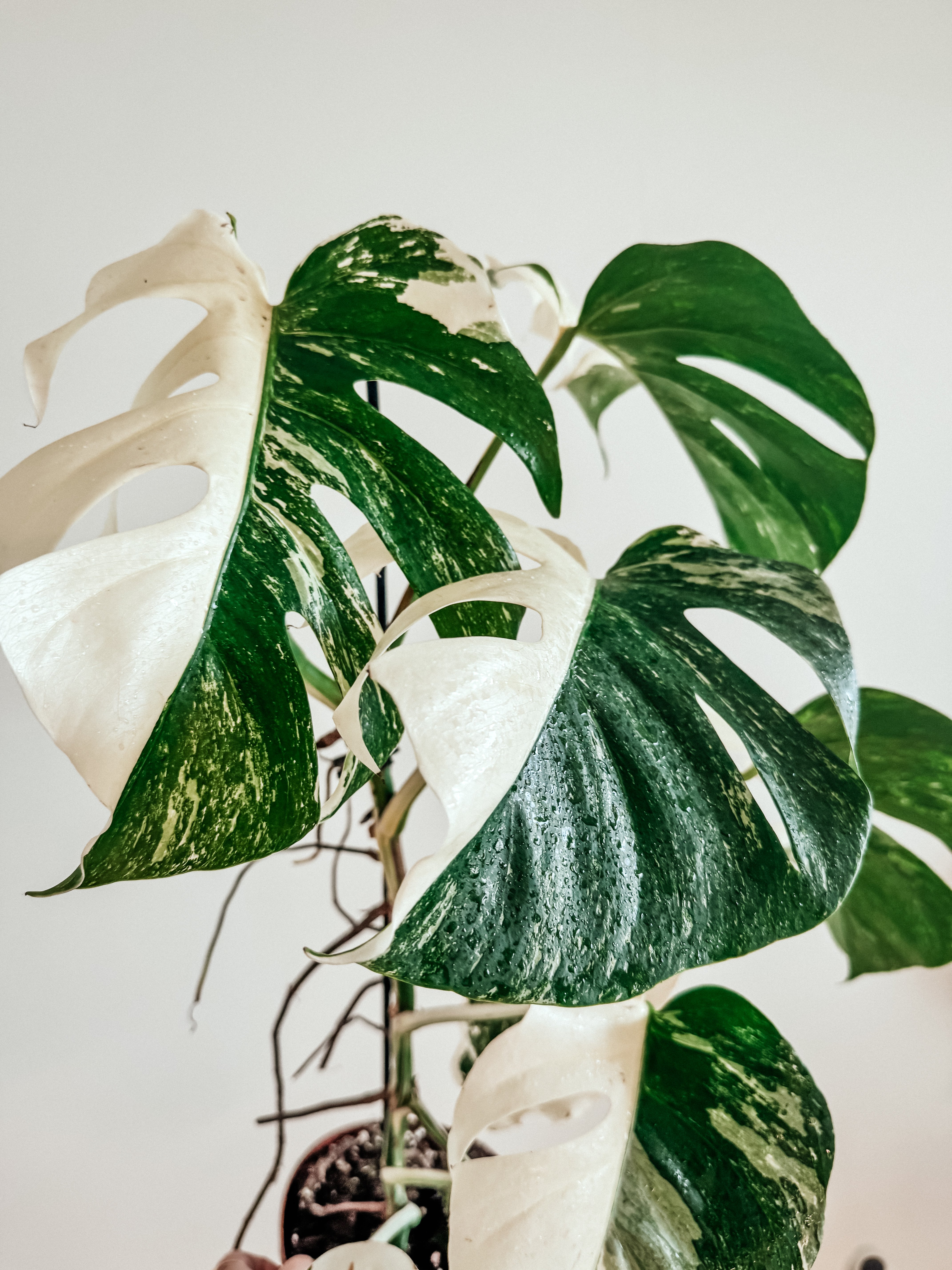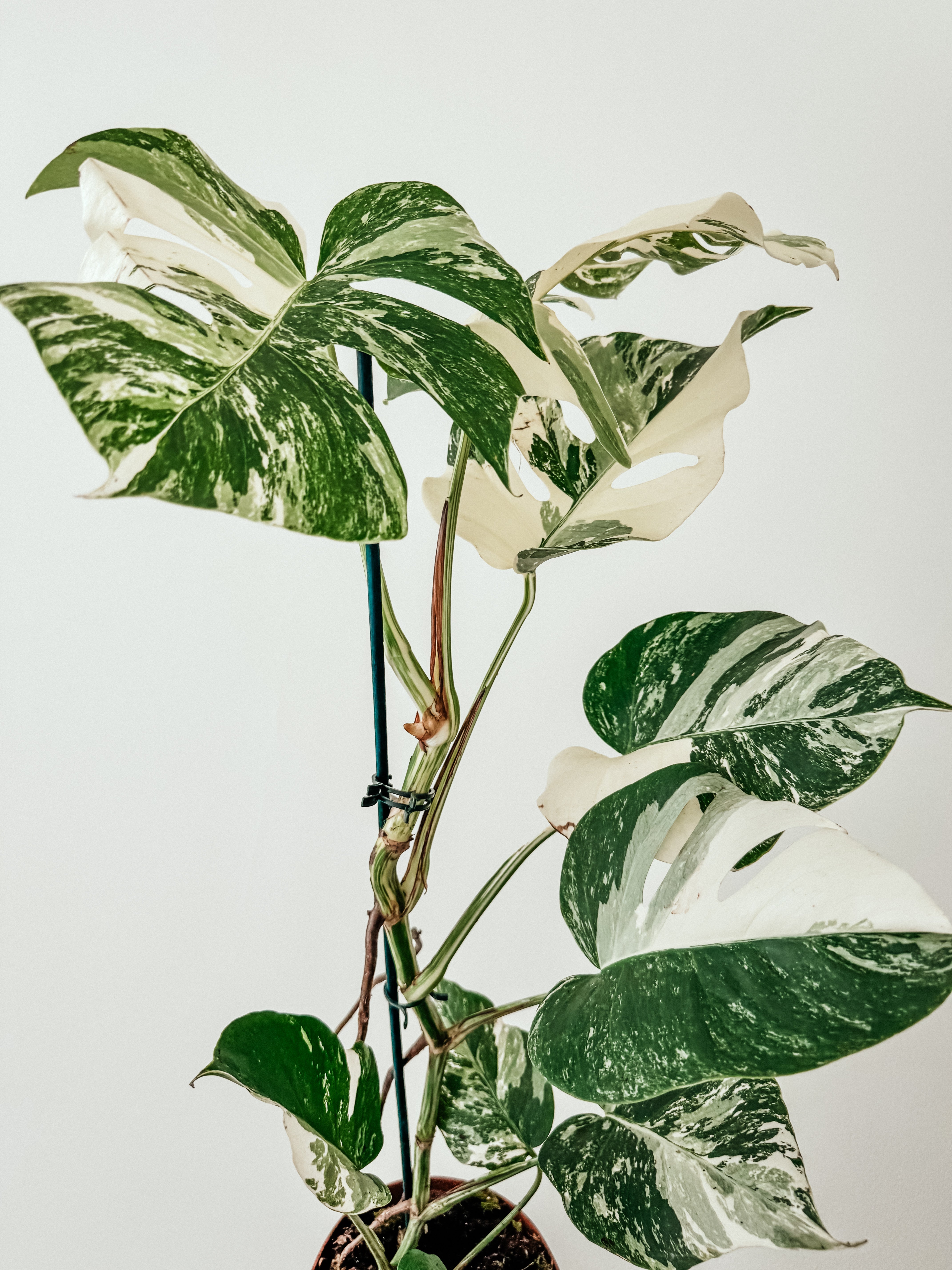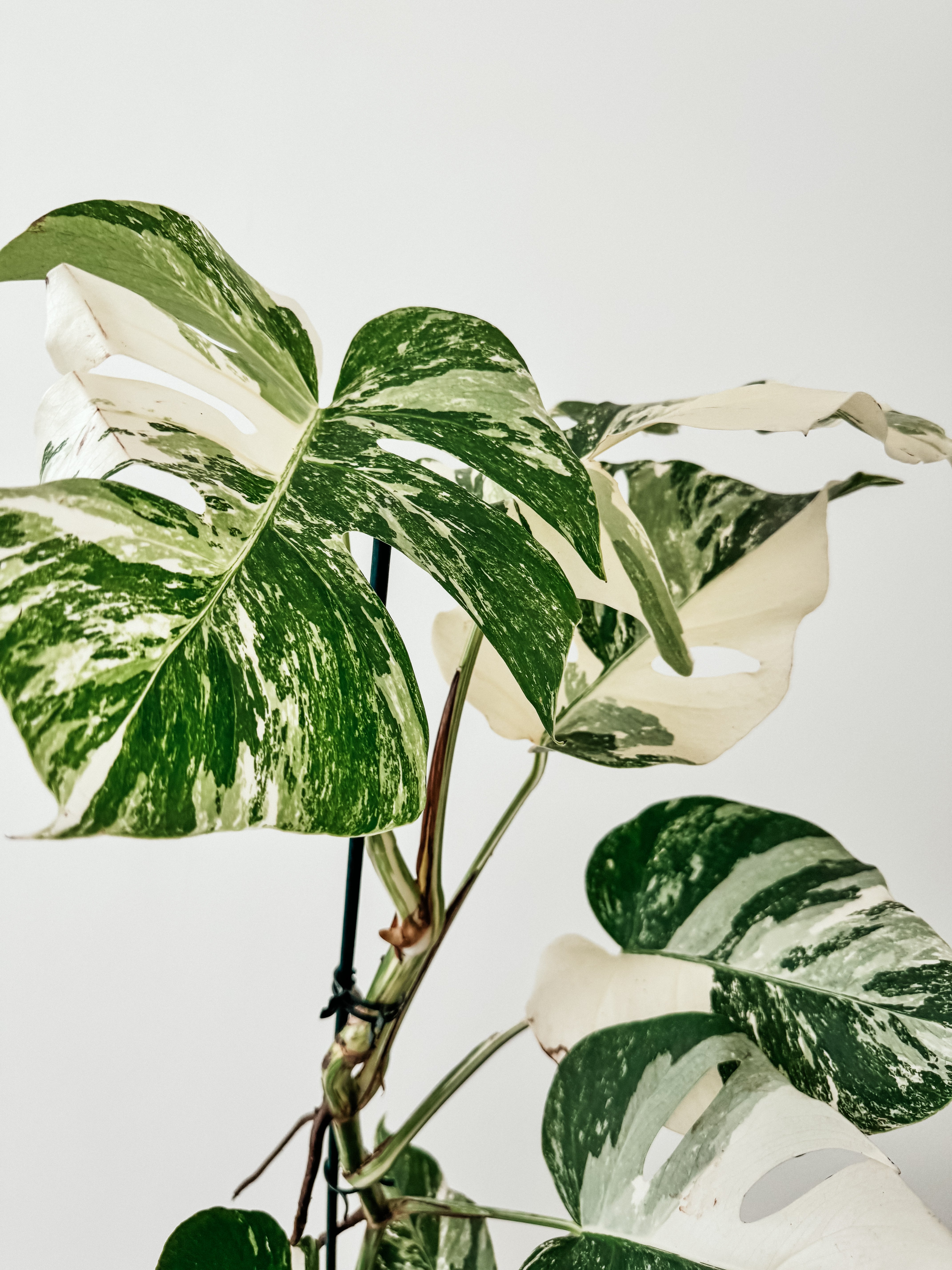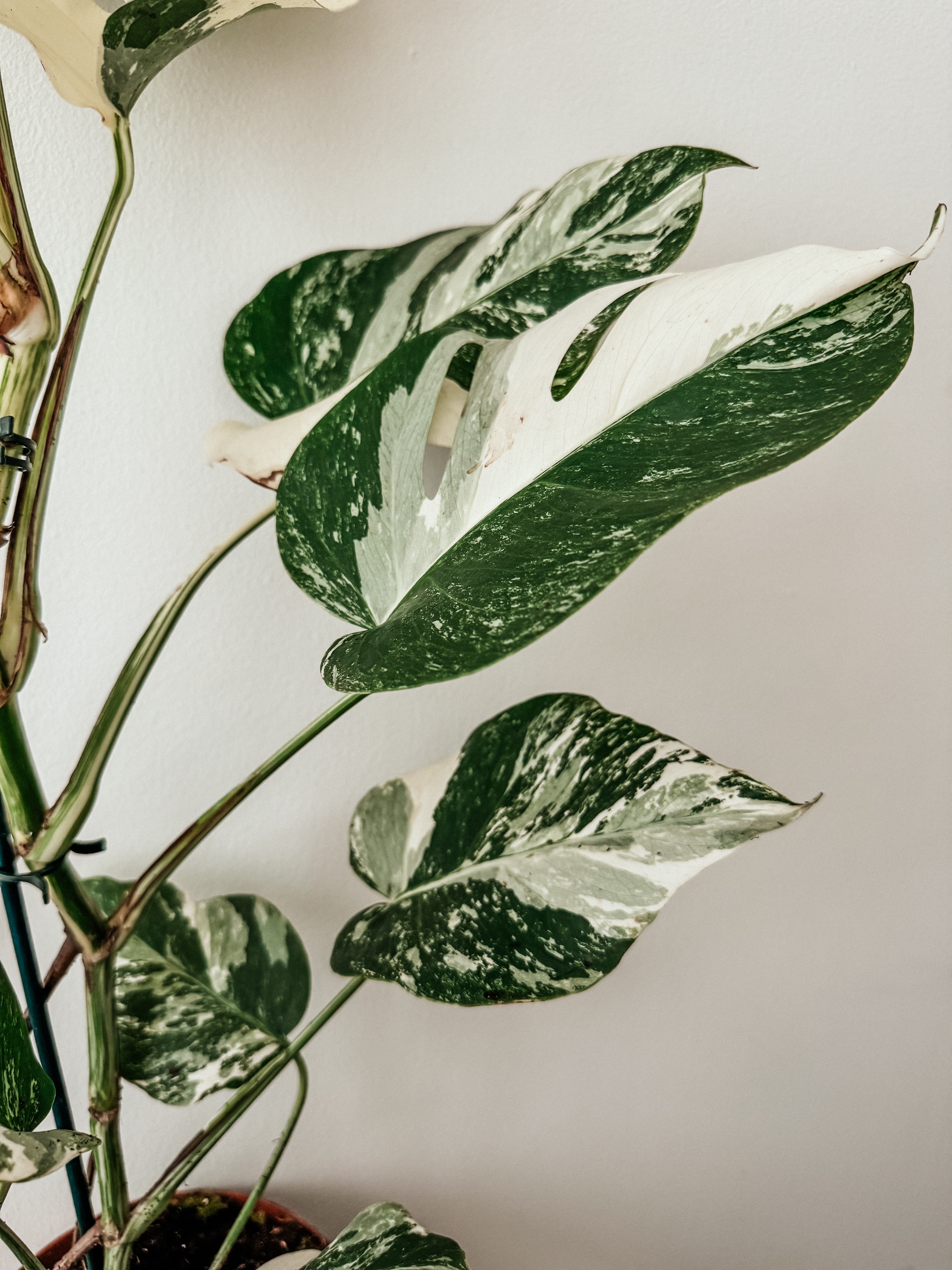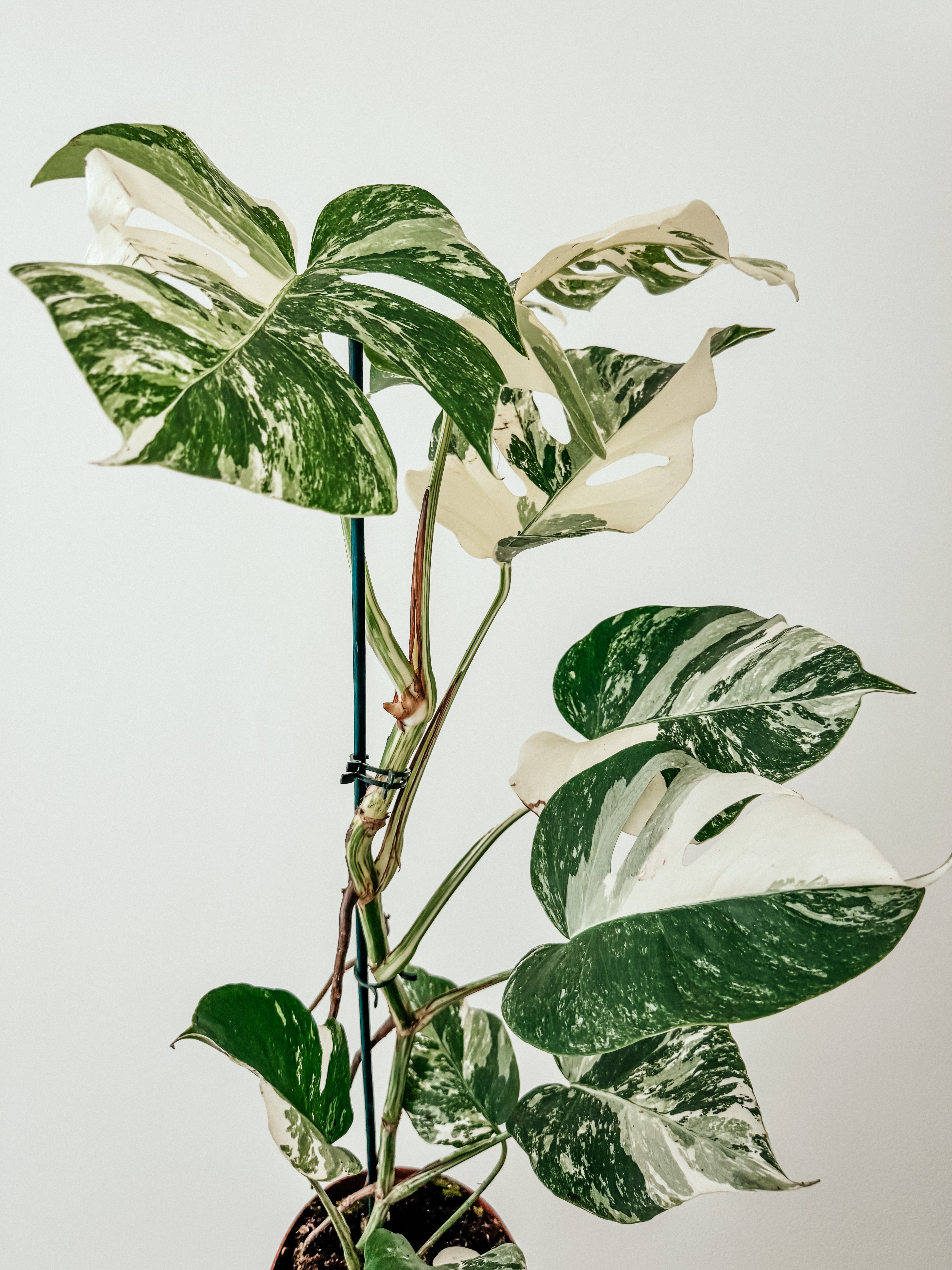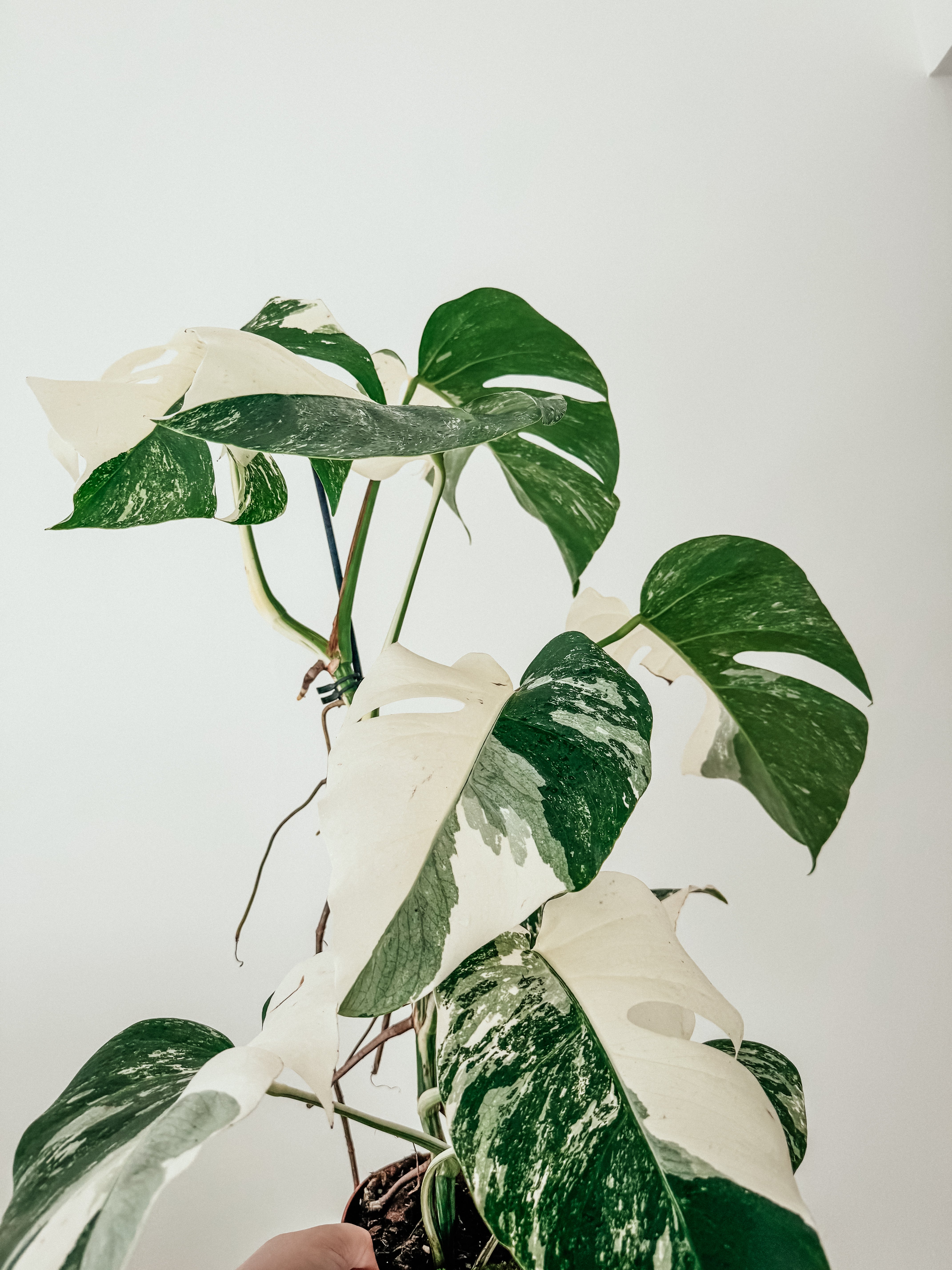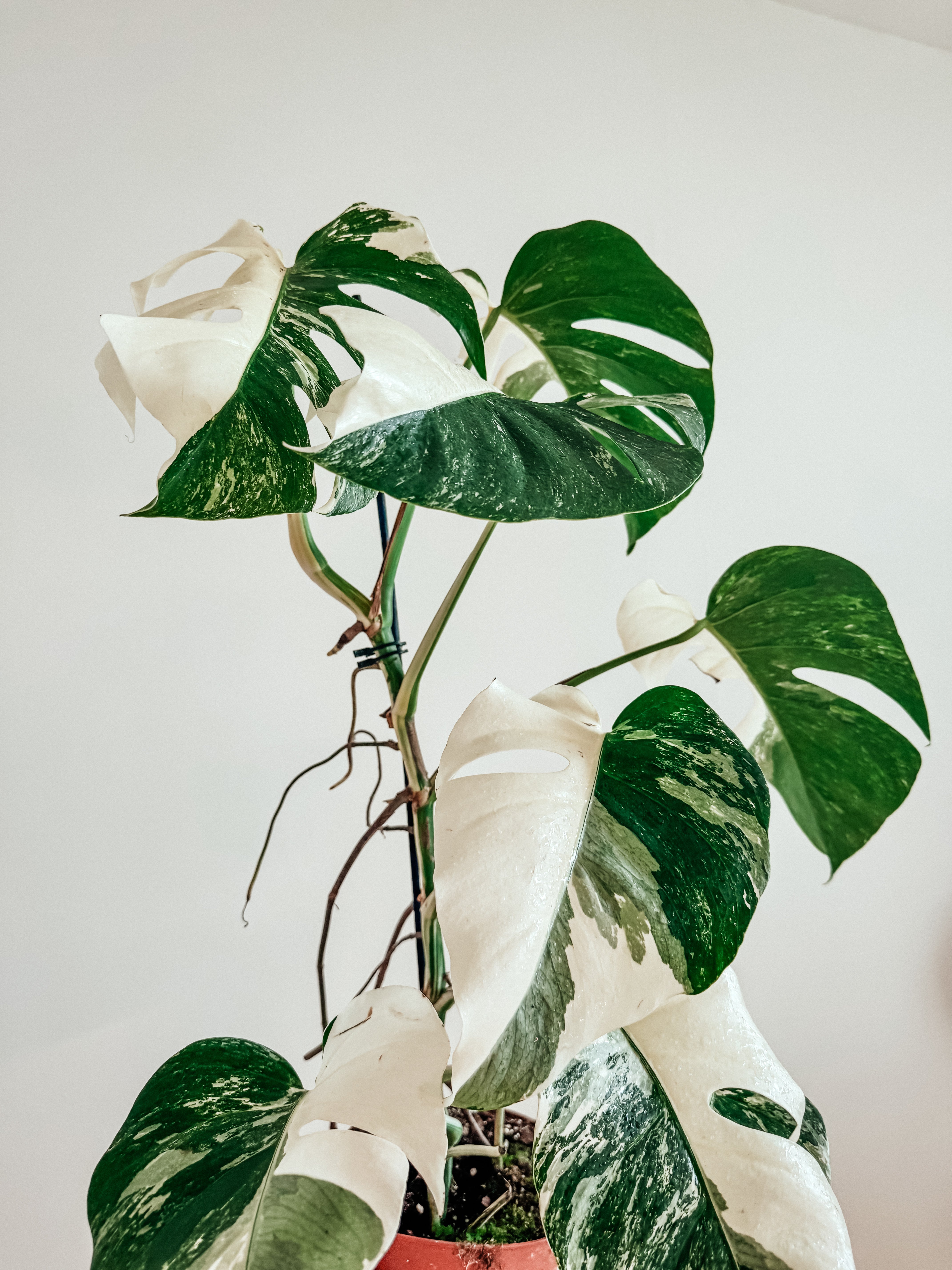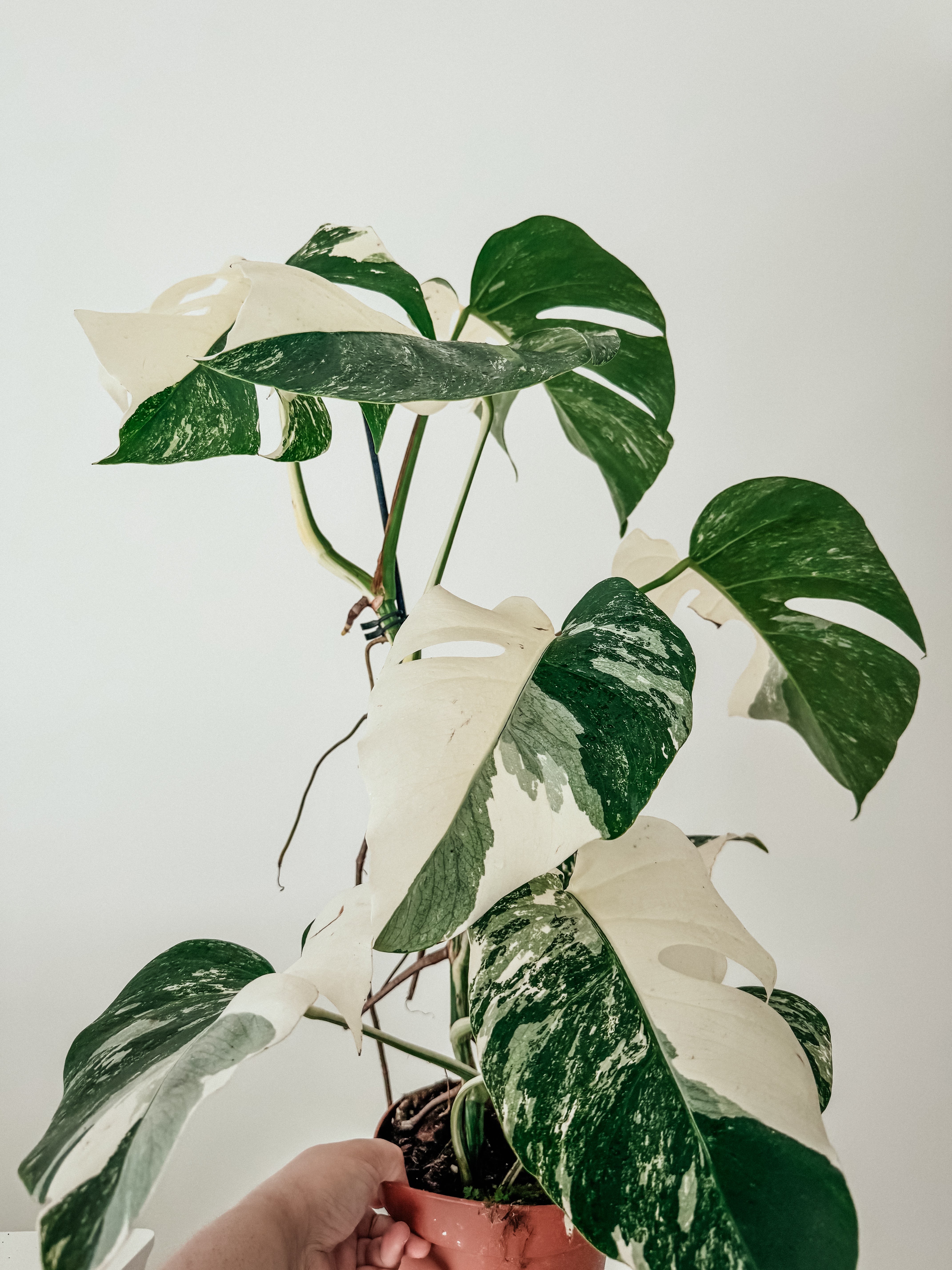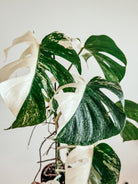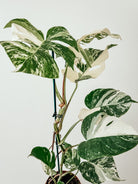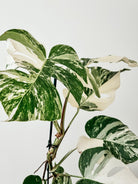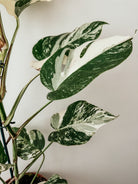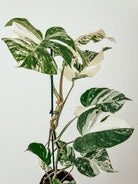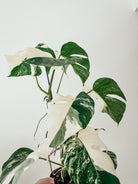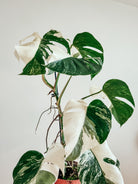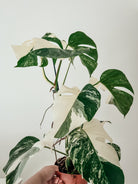Monstera Deliciosa Albo 70cm
Couldn't load pickup availability
Size: 70cm, comes in 24cm nursery pot
Because of the white or cream patches, this plant needs slightly different care than a regular green Monstera.
1. Light
-
Bright, indirect light is crucial.
Variegated sections have no chlorophyll, so the plant can’t photosynthesize as efficiently; it needs more light than a standard Monstera to stay healthy. -
Avoid harsh direct sun (especially midday) to prevent burning the pale sections.
2. Watering
-
Let the top 2–3 cm (about 1 inch) of soil dry out before watering again.
-
Water thoroughly until it drains out, but don’t let the pot sit in water—root rot is common.
-
In winter or low light, cut back watering frequency.
3. Soil / Potting Mix
-
Use a loose, chunky, fast-draining mix:
-
Orchid bark or coco husk
-
Perlite or pumice
-
Coco coir or peat moss
-
Optional: horticultural charcoal
-
-
Aim for a mix that holds moisture but has plenty of air pockets.
4. Temperature & Humidity
-
Ideal temperature: 18–27 °C (65–80 °F)
-
Humidity: 60% or higher is ideal. Use a humidifier or place the plant on a pebble tray if indoor air is dry.
5. Fertilization
-
Feed with a balanced, diluted liquid fertilizer every 4–6 weeks during active growth (spring/summer).
-
Cut back in Dubai winter when growth slows.
-
Variegated plants are more sensitive to overfertilization—use half-strength first.
6. Support & Growth
-
Give it a moss pole or coir pole for climbing. This encourages larger leaves and more fenestrations (splits/holes).
-
Tie stems loosely as they grow to guide upward.
7. Pruning & Propagation
-
Trim off any entirely green shoots if you want to maintain variegation (optional—this controls reversion).
-
Propagate by taking stem cuttings with at least one node and aerial root. Root in water, moss, or aroid mix.
8. Pests & Issues
-
Watch for spider mites, thrips, scale, or mealybugs.
-
Browning tips: often low humidity or inconsistent watering.
-
Yellow leaves: can be overwatering or nutrient issues.
9. Extra Tips for Variegated Forms
-
Growth may be slower due to reduced chlorophyll—this is normal.
-
Rotate the plant every few weeks so all sides get equal light.
-
When repotting, don’t jump to an oversized pot; upsize gradually.

